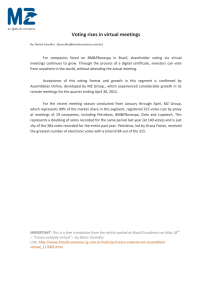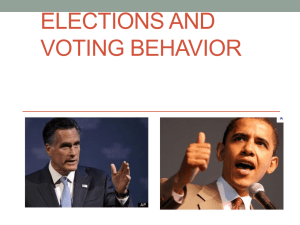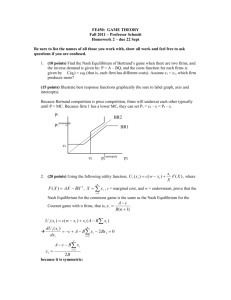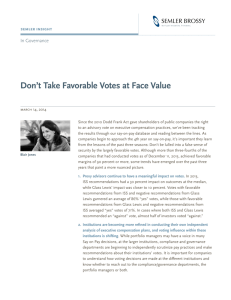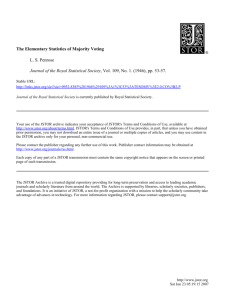Winning the arguments
advertisement
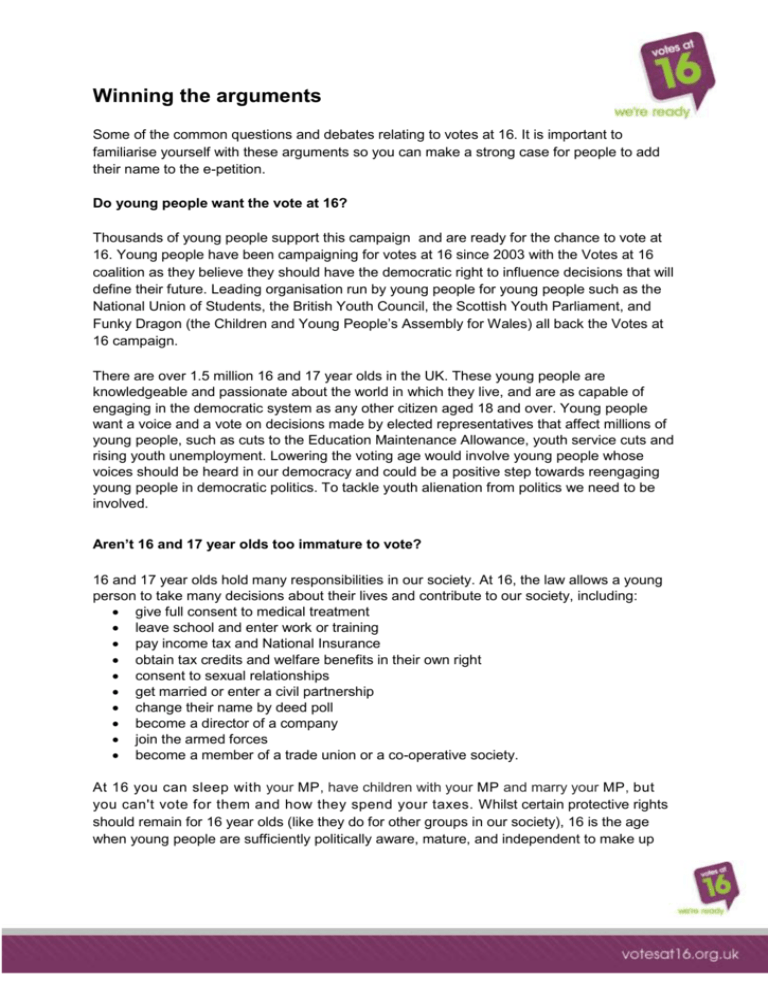
Winning the arguments Some of the common questions and debates relating to votes at 16. It is important to familiarise yourself with these arguments so you can make a strong case for people to add their name to the e-petition. Do young people want the vote at 16? Thousands of young people support this campaign and are ready for the chance to vote at 16. Young people have been campaigning for votes at 16 since 2003 with the Votes at 16 coalition as they believe they should have the democratic right to influence decisions that will define their future. Leading organisation run by young people for young people such as the National Union of Students, the British Youth Council, the Scottish Youth Parliament, and Funky Dragon (the Children and Young People’s Assembly for Wales) all back the Votes at 16 campaign. There are over 1.5 million 16 and 17 year olds in the UK. These young people are knowledgeable and passionate about the world in which they live, and are as capable of engaging in the democratic system as any other citizen aged 18 and over. Young people want a voice and a vote on decisions made by elected representatives that affect millions of young people, such as cuts to the Education Maintenance Allowance, youth service cuts and rising youth unemployment. Lowering the voting age would involve young people whose voices should be heard in our democracy and could be a positive step towards reengaging young people in democratic politics. To tackle youth alienation from politics we need to be involved. Aren’t 16 and 17 year olds too immature to vote? 16 and 17 year olds hold many responsibilities in our society. At 16, the law allows a young person to take many decisions about their lives and contribute to our society, including: give full consent to medical treatment leave school and enter work or training pay income tax and National Insurance obtain tax credits and welfare benefits in their own right consent to sexual relationships get married or enter a civil partnership change their name by deed poll become a director of a company join the armed forces become a member of a trade union or a co-operative society. At 16 you can sleep with your MP, have children with your MP and marry your MP, but you can't vote for them and how they spend your taxes. Whilst certain protective rights should remain for 16 year olds (like they do for other groups in our society), 16 is the age when young people are sufficiently politically aware, mature, and independent to make up their minds and choose between the various candidates standing for election. Shouldn’t we focus on getting more 18 to 24 year olds to turnout through better citizenship education rather than votes at 16? Quality citizenship education should be coupled with votes at 16 because at the moment young people are waiting to put what they have learnt into practice at the ballot box. Lowering the voting age could play a huge role in helping young people feel more connected with political processes which would strengthen local and national democracy and is the next logical extension for citizenship education Votes at 16 will inspire young people to get involved. If you vote early, you vote often. Giving young people the opportunity to vote at 16 means they get the chance to vote before they move out of the area they grew up in to get a job or go onto university and voting drops down the list of priorities. Votes at 16 would mean that everyone would get the chance to vote in a General Election before they turn 21, rather than having to wait until they are 23. Most countries have the voting age at 18, why should the UK be different? The UK has always had a pace-setting precedent with regards to voting rights and shouldn’t be left behind on votes at 16. When the UK lowered the voting age to 18 IN 1969, it was quickly followed by France, Italy, Canada, Australia and the USA. Other countries that have already lowered the voting age to involve young people in their democratic processes include Germany, Austria and crown dependencies of the UK - Isle of Man, Jersey and Guernsey. Austria became the first EU state to adopt votes at 16 for all elections in 2007, following rolling out votes at 16 in areas from 2000, and research has found that its 16 and 17 year olds are turning out to vote in the same way as other voters (Research by the University of Vienna found that 59% of 16 and 17 year olds had voted in 2005 elections in Vienna, compared to a general turnout of 61%).
